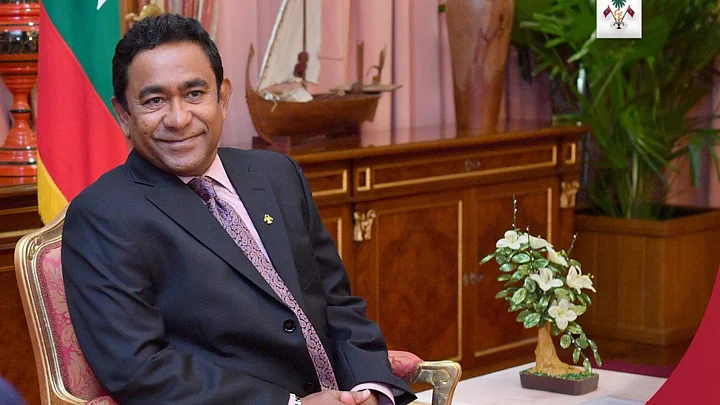Maldives President Abdulla Yameen will lift a 45-day state of emergency on Thursday, 22 March, and the government will bring bribery charges against former leader Maumoon Abdul Gayoom and the chief justice, said a senior Maldives diplomat.
Yameen imposed a state of emergency on 5 February for 15 days to annul a Supreme Court ruling passed on 1 February that quashed convictions against nine opposition leaders and ordered his government to free those held in prison.
He later extended the state of emergency for another 30 days with parliament approval, a move challenged by the opposition.
Under the emergency, Yameen’s administration arrested former president Maumoon Abdul Gayoom, the chief justice, another Supreme Court judge, and a Supreme Court administrator on allegations of attempting to overthrow the government. They have all rejected the charges.
“Unless something unusual happens, we should not have emergency by Thursday,” Mohamed Hussain Shareef, Maldives Ambassador for Sri Lanka told a Foreign Correspondents Association forum on Monday, 19 March.
The government has no intention of extending it any further, barring very unusual circumstances like widespread violence. The intention is to do away with this state of emergency when the current 30 day period expires on 22 March.Mohamed Hussain Shareef, Maldives Ambassador for Sri Lanka
Shareef said bribery charges against Chief Justice Abdulla Saeed and Supreme Court Judge Ali Hameed have been sent to the prosecutor general, and that bribery charges will also be brought against Former President Gayoom and Supreme Court administrator Hassan Sayeed.
“That is definite. We know that charges will be pressed against the four of them,” Shareef said.
Gayoom is accused of bribing the three legal professionals to overthrow the Yameen government.
Despite opposition claims that hundreds of people have been arrested under the state of emergency, Shareef said only 38 had been arrested so far, while others were “detained and released”.
Maldives police told Reuters on Saturday that at least 139 opposition protesters were arrested as they attempted to defy orders under the state of emergency and march into the high security zone in capital Male.
When asked if any foreign agent or country had a role in the Maldives crisis, Shareef said: “In my knowledge, the investigations at the moment are focused on local actors only”.
Rights group Amnesty International has said the Maldivian government was using the emergency “as a license for repression, targeting members of civil society, judges and political opponents”.
Yameen’s government retains a majority in parliament in the absence of the opposition’s 12 MPs who were stripped of their seats by Yameen’s party for defecting in 2017.
(This copy was published in arrangement with Reuters.)
(The Quint has given up the use of plastic plates and spoons in its cafeteria. This Earth Hour, what will you #GiveUp to save your planet? Use the hashtag #GiveUp and tag @TheQuint to tell us.)
(At The Quint, we question everything. Play an active role in shaping our journalism by becoming a member today.)
